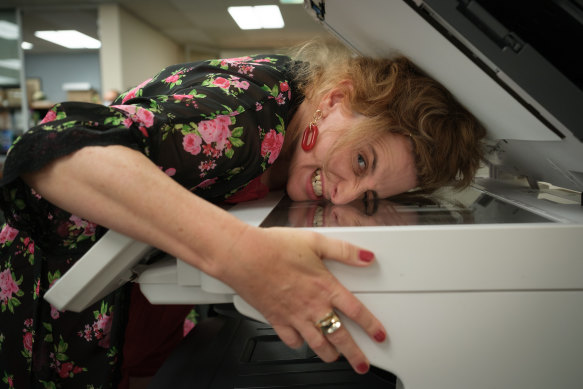
It’s hard not to be suspicious of motivations when yet another program comes along that is an Australian version of an overseas hit. Cynicism is often the default mode when it comes to TV criticism, and it’s apt to go into overdrive when you see the latest “this is that show you love – only in Australia!” Sometimes it seems like Australian TV hasn’t progressed since the cringeworthy days of Are You Being Served in Australia? At least that had John Inman – the makers of NCIS: Sydney steadfastly refused to fly Mark Harmon Down Under to make it worth watching.
There is a certain logic to NCIS: Sydney: there were already several spin-offs in the NCIS-verse set in various US locales, and the routine of following a bunch of naval cops in a different city was already well-established. So why not Sydney, right? Besides the fact that Australia doesn’t have an NCIS and coming up with justifications for the American agency to continue teaming up with the Australian Federal Police requires heroic stretching of plausibility.

The latest NCIS spin-off heads Down Under to solve crimes near televisual landmarks.Credit: Paramount
But then the entire franchise is built on being implausible, so it’s not a major problem. The problem is that every time a show like this gets made, the question of why raises its bolshy little head. There are always myriad reasons a TV show gets made, many of them involving budgets and projections and local content quotas. But if you asked the creative minds behind NCIS: Sydney why they wanted to make the show, would the network’s publicity team allow them to give an honest answer?
Dramas and comedies aren’t like reality shows. Franchises like Survivor, The Amazing Race, Masterchef et al produce dozens of different versions for different countries, and the logic is obvious: to give the punters in each country a chance to participate. Obviously, the overriding logic is “to cash in”, but we’re talking artistic decisions here, and the point is reality franchises have a solid reason to diversify to different settings that doesn’t exist for scripted narrative shows. You can’t sign up to be a contestant on NCIS, so whether it’s set in Los Angeles or Sydney doesn’t make a difference to you – you’re still just watching fictional cops catching fictional crooks, and why should creating a whole different set of fictional people who live a bit closer to your house add anything to your entertainment world?
The Office Australia recently debuted on Amazon Prime to mixed reactions. There were loud denunciations, but it also racked up impressive viewing figures and had its defenders. Whether one finds it watchable or not the question of why it exists remains. More than 20 years after Ricky Gervais and Stephen Merchant’s brilliant British original came out, and more than 10 years after the American remake wrapped up, one couldn’t accuse The Office Australia’s makers of striking while the iron’s hot.

Flinley Craddick’s MD Hannah Howard (Felicity Ward) gets up close with the photocopier in The Office Australia.
Although the US Office ran for nine seasons and was wildly popular, surpassing the original in many eyes, even it was a fairly questionable proposition. Even back in 2005, the UK Office was easily available for American viewers – its popularity in America was why it was remade for Americans, which is the paradoxical truth at the heart of these remakes. The show is made ostensibly to make the premise more accessible to a particular audience, but the fact the show is being made proves it already is. The reason you make the show is also the reason making the show is completely pointless.
In the case of the US Office, although it started as an awkward facsimile of the British one, it quickly found its feet as an original comedy, with a distinctive vibe and style quite different from its progenitor. Maybe the Australian edition, given time, will do so as well – the first season has betrayed a worrying determination to ape the American show at every turn. But even if it blossoms into a quirky, original, wholly different beast from its forebears, the burning question remains: why? If you make a show that is simply a slavish reconstruction with different accents, what’s the point of making a new show? But then again, if you make a show utterly different to the original, then what’s the point of basing it on the original? One could, after all, easily make a sitcom about people working in an office, and not call it The Office. Indeed, many many have.
The answer is slightly depressing, of course: the show is called The Office because people already know The Office, and it’s easier to sell something people know. Nobody involved with the show will say this, of course: they’ll say something like “we thought it was a great time to bring The Office to a whole new audience”. Which would be brilliant, if it weren’t for the fact that it’s 2024, and everyone can already see The Office – in multiple forms – anytime they like. The age of streaming has made remaking old shows less justifiable than ever.



